Archives: Documents
-
Towards Gender Equality and Social Inclusion in Energy Utilities: Approaches, Methods, and Results from Nepal
The project Strengthening the Capacity of the Energy Sector to Deliver Gender Equality and Social Inclusion Results was implemented from January 2019 until December 2021. The project’s ultimate goal was to mainstream gender equality and social inclusion (GESI) in the program and project cycles of the Nepal Electricity Authority (NEA). The NEA is responsible for…
-
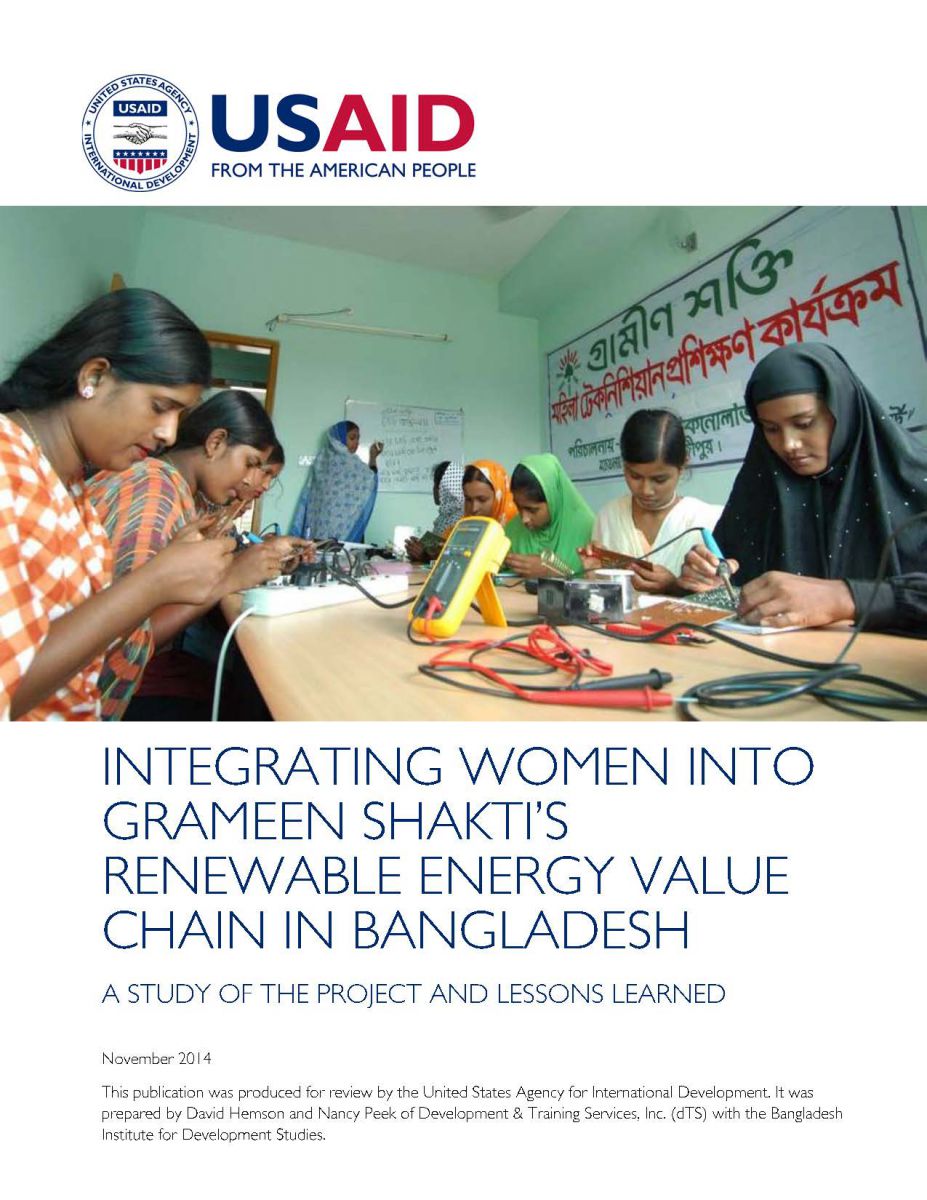
Integrating Women into Grameen Shakti’s Renewable Energy Value Chain in Bangladesh: A Study of the Project and Lessons Learned
This assessment report considers gender equality and women’s empowerment in Bangladesh, and covers a study focused on the USAID-funded Rural Empowerment through Renewable Energy project. This 15-day technological training for rural women in Bangladesh helped to integrate women into the Grameen Shakti (or GS, the leading renewable energy company in the country) renewable energy value…
-
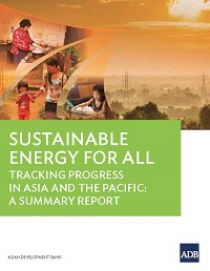
Sustainable Energy for All Status Report: Tracking Progress in Asia and the Pacific
This report reviews the early work of the AP-SE4All, and the conditions of the developing Asia and Pacific countries it is working with. It charts preliminary progress, and assesses the policy environment which the work to achieve the SE4All targets will operate within. Uniquely, this report highlights the nexus of issues involving women, children, and…
-
Gender in the transition to sustainable energy for all: From evidence to inclusive policies
The five-year research programme on gender and energy (2014-2019), coordinated by ENERGIA, was supported by the UK’s Department for International Development (DFID) as part of its Sustainable Energy, Access and Gender (SEAG) programme. The objective of the programme was to generate and analyse empirical evidence of the links between gender, energy and poverty, and to…
-
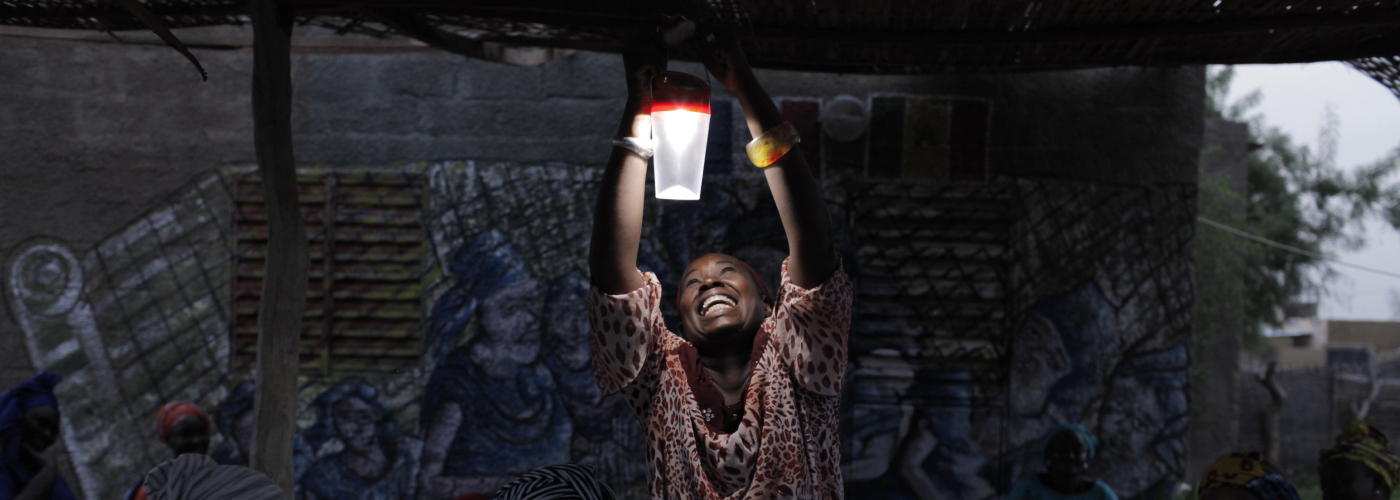
Supporting last-mile women energy entrepreneurs: What works and what does not
ENERGIA has been working on the intersection of energy access and women’s economic empowerment through its Women’s Economic Empowerment (WEE) programme. This document presents ENERGIA’s four-year journey to create and upscale women-centric energy enterprises that sell safe, reliable and affordable energy solutions to low-income consumers in underserved areas. It is a self-reflection, undertaken collectively by…
-
Unlocking the Benefits of Productive Uses of Energy for Women in Ghana, Tanzania and Myanmar
This research report provides empirical evidence from three case studies in Tanzania, Ghana and Myanmar to address the existing literature gap on gender and PUE. The focus is on electricity, because our target regions benefited from interventions to provide access to electricity, and in some cases to promote productive uses and gender mainstreaming. However, our…
-
Gender and fossil fuel subsidy reform: Findings from and recommendations for Bangladesh, India and Nigeria
The report looks at the impact of subsidies and reform to kerosene and liquefied petroleum gas (LPG) from a gender perspective across three countries (Bangladesh, India and Nigeria). The research was based around two overall research questions namely ‘How do existing kerosene and LPG subsidy policies affect the welfare, productivity and empowerment of women and…
-
The gender factor in political economy of energy sector dynamics
This study seeks to bring gender issues into the political economy analysis of the dynamics in access and use of modern energy services, chiefly clean cooking energy, (such as LPG or biogas), and modern energy in agriculture (such as electricity, diesel and solar power). In looking at modern energy services we distinguish between three levels…
-
Women’s empowerment and electricity access: How do grid and off-grid systems enhance or restrict gender equality?
-
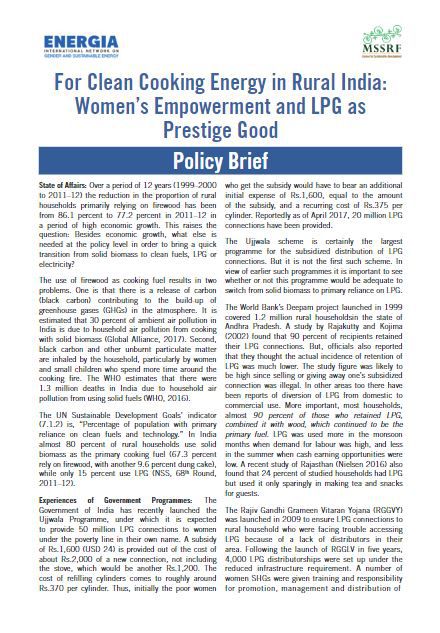
For Clean Cooking Energy in Rural India: Women’s Empowerment and LPG as Prestige Good
-
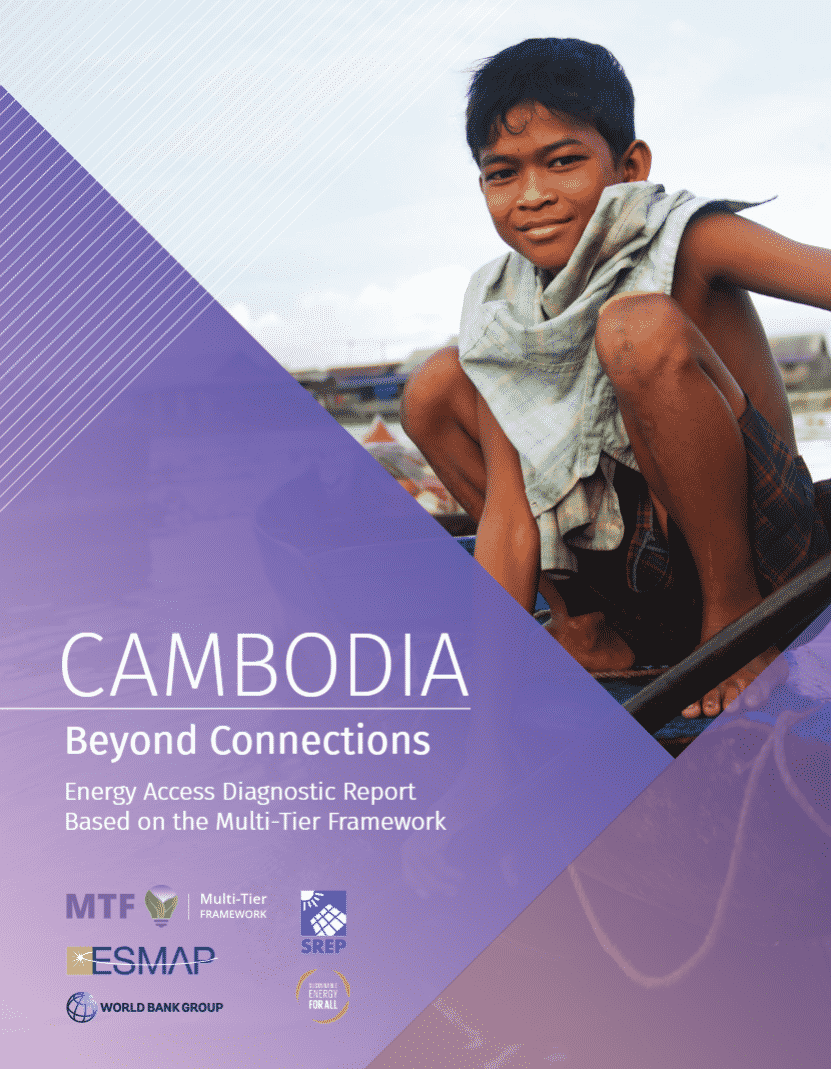
CAMBODIA – Beyond Connections: Energy Access Diagnostic Report Based on the Multi-Tier Framework
The MTF survey is a global baseline survey on household access to electricity and clean cooking, which goes beyond the binary approach to look at access as a spectrum of service levels experienced by households. Resources included are raw data, codebook, questionnaires, sampling strategy document, and country diagnostic report. Formats include zip file (which includes…
-
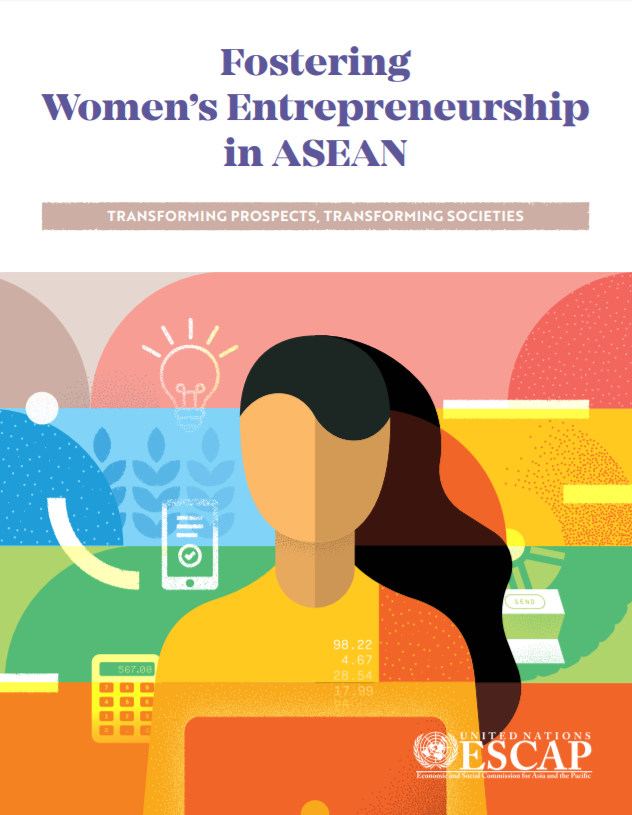
Fostering women’s entrepreneurship in ASEAN
In its recent publication “Fostering Women’s Entrepreneurship in ASEAN: Transforming Prospects, Transforming Societies” the United Nations Economic and Social Commission for Asia and the Pacific (ESCAP) proposes critical actions that can be taken by ASEAN Governments to address the particular constraints facing women entrepreneurs. Those actions are foreseen to be taken in conjunction with other…

